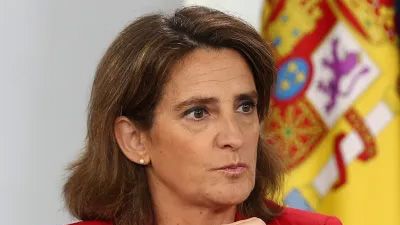Spanish socialist Teresa Ribera is set to replace Margrethe Vestager as the EU’s antitrust chief, bringing a new approach to competition in the region.
If confirmed by the European Parliament, she will serve under the recently reelected European Commission President Ursula von der Leyen who picked her as part of a new team.
Ribera has a long political history in the climate space, acting as the Director of the Institute for Sustainable Development and International Relations between 2014 and 2018, before working as Spain’s Minister for Ecological Transition.
In the latter role, Ribera scrapped a tax on solar power to drive down electricity costs and ramp up sustainable power. She also settled a €250 million fee to close down mines while maintaining the worker’s standard of living.
While her new role has a focus on climate change and sustainability efforts, it now also primes Ribera to lock horns with some big names in tech as the commission’s competition lead.
Margrethe Vestager has held the role up until this point and has done much to shape competition in Europe – now it looks like Ribera will be taking on the mantle.
There is a sense of what this role may entail in a ‘Mission Letter’ addressed to Ribera from von der Leyen, in which the former is formally given responsibility over the “competition portfolio.”
“Europe needs a new approach to competition policy – one that is more supportive of companies scaling up in global markets, allows European businesses and consumers to reap all the benefits of effective competition, and is better geared to our common goals,” von der Leyen wrote.
Von der Leyen spoke of fostering innovation while also maintaining a “level playing field,” pointing Ribera in the direction of a competition policy both fair and flexible.
“Competition policy should also reflect the growing importance of resilience in the face of geopolitical and other threats to supply chains,” she added.
Ribera will inherit a complex landscape of competition concerns when she takes office, particularly in the world of tech where the EU has had to pay close attention to the movements of certain companies.
Over the last year, in particular, the EU has taken aim at Microsoft for its anti-competitive practices in the generative AI space. European officials have looked into the firm’s investments in OpenAI, Mistral, and Inflection.
Google has also found itself under investigation, with the firm just recently dodging a hefty €1.5 billion fine over its online advertising business.
Source link
